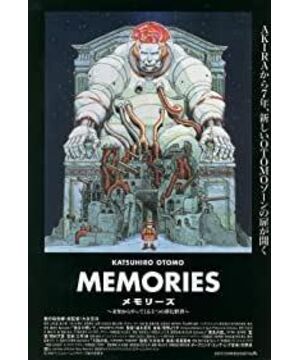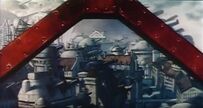"Her Memories" reminds me of a fact that has been proved by psychology: human beings have a psychological mechanism for self-protection, which will always automatically delete the painful part of the memory and keep the good ones, and even generate false fantasies. In the movie, she didn't want to face the fact of her lover's betrayal. After killing him with her own hands, she began to create a perfect story in her heart and set herself as the heroine in the story. The pursuit of a lost love and the reality of escaping the tragedy gave her hallucinations, and she was immersed in her own imaginary world and unable to extricate herself. Weima and her agent in "Weima's House" also have dual personalities because of their inability to change reality. The world of fantasy is too deep and their personalities are split.
Many Japanese movies are aimed at psychological portrayals, and they are often very good in expressing mental illnesses such as split personality and claustrophobia. Very unprofessional, I think it may have something to do with their national culture and national personality - full of extreme duality: absolute obedience and lack of individuality as an individual in a collective, wild and peak as a free individual; The oppression manifested in life in reality and the omnipotence in personality creation.
Milan Kundera said in "Ignorance": The stronger the homesickness, the emptier the memory. Because homesickness does not promote human memory activities, and does not evoke previous memories, on the contrary, it is satisfied with itself, satisfied with its own passions, and is completely submerged in its own pain.
The memory of lovelorn is similar to homesickness. Affected by the psychological protection mechanism, the victim of a lovelorn imagines countless different endings after the ifs. This urgency and despair for recovery is so deep that she Forget the reality, forget the past, and sink forever into a modified swamp of memory.
"The Stinkiest Artilleryman" is very dark humor, and has a similar mockery of scientific alienation as "Old Man Z". This reminds me of a paragraph that Zha Jianying once commented on "Avatar" in "The Three Walks of Qiangqiang", to the effect that the infinite pursuit of scientific and technological progress by human beings makes its development lack the support of humanistic thoughts and beliefs. Constant alienation will eventually lead to an uncontrollable situation in the world due to a discovery and application in an unknown field, which will eventually destroy human beings (she gave an example of genetic engineering at the time). At that time, I remembered her words, perhaps because of shock, or more likely because I acquiesced and agreed in my heart.
Thinking of the current nuclear weapons problem, in fact, every country should have it. They are all secretly building nuclear weapons production teams and vigorously developing them. But everyone is still talking sarcastically, condemning North Korea today and criticizing Iran tomorrow. In fact, they are all tacit, and secretly compete for who makes more land faster and who is more powerful.
In this way, I thought of the animal protection business that I am passionate about. The most powerful classes of power are all engaged in nuclear weapons, the destruction of the earth and self-destruction, while the lower classes are still devoting themselves to the cause of animal protection, doing charity, and saving weak lives. It may be impossible to make any substantive achievements in the field of animal protection in China before the start of the Third World War. How sad it would be!
Developmentism is really a double-edged sword. It brings people a better life and a happy utopia, and at the same time puts absolute destruction in front of people. to be or not to be , that is a question. Human, I don't think your end is far away. Sudden abruptly at an extreme climax, this dramatic structure may apply to human history—the last few hundred years of rapid development and instant destruction by nuclear war and everything to zero.
"Street of Cannons" is definitely a portrayal of "1984" and China before the reform and opening up. Liu Yu seemed to say that she had seen a movie about a totalitarian family where parents imprisoned their children in a small villa, with high walls enclosing an enclosed living space. The father warns his children in a vigilant tone every day that the outside world is horrible and cruel, and only the home is safe and happy, so as to control the children's thoughts and actions. This is a typical microscopic interpretation of totalitarianism, and a magnified example is China in those decades. Isolation of information, forced brainwashing, and stern anti-revolution make people absolutely submit to an authoritative centralized representative, consolidating the regime by constantly hating the fictional enemy and strong hostility.
View more about Memories reviews










